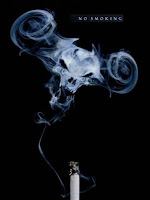 It's October 31, 2009 --
It's October 31, 2009 -- What does that mean??
For me it means:
Seventeen (17) weeks ...
119 days ... and a few days short of
Four months with out a smoke!
Not even one puff! Woo~hoo!
Editor's Note:
CONGRATULATIONS KEVIN~
It's kind of been like we share a Birthday just a few days apart!
Very cool --
It seems like most of our fellow recovering smokers have dropped out but hopefully we can pick up and encourage a few new ones.
If anyone's been reading this blog for awhile you know this isn't my first attempt at quitting. After so many attempts, I can only remember my longest was nearly one year; I can't be sure of my second longest but right now I am sure if I haven't surpassed it yet I'm closing in on it now.
Additionally, if you've been reading along you may be aware I am not an Anti-Smoker -- I am simply someone who's been addicted to nicotine and smoking for nearly 30 years with little to no success at Kicking The Habit.
All I want to do is use this blog to fight my own demons regarding this addiction as well as give tools, encouragement and hope to others to combat theirs!
Happy Halloween Everybody! FJW
PSS: Reminder -- End of Daylight Savings Time --
After you are done drinking and not smoking tonight,
Don't for get to FALL BACK!










